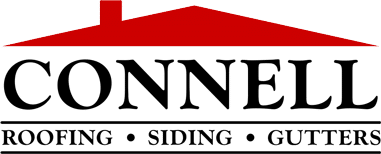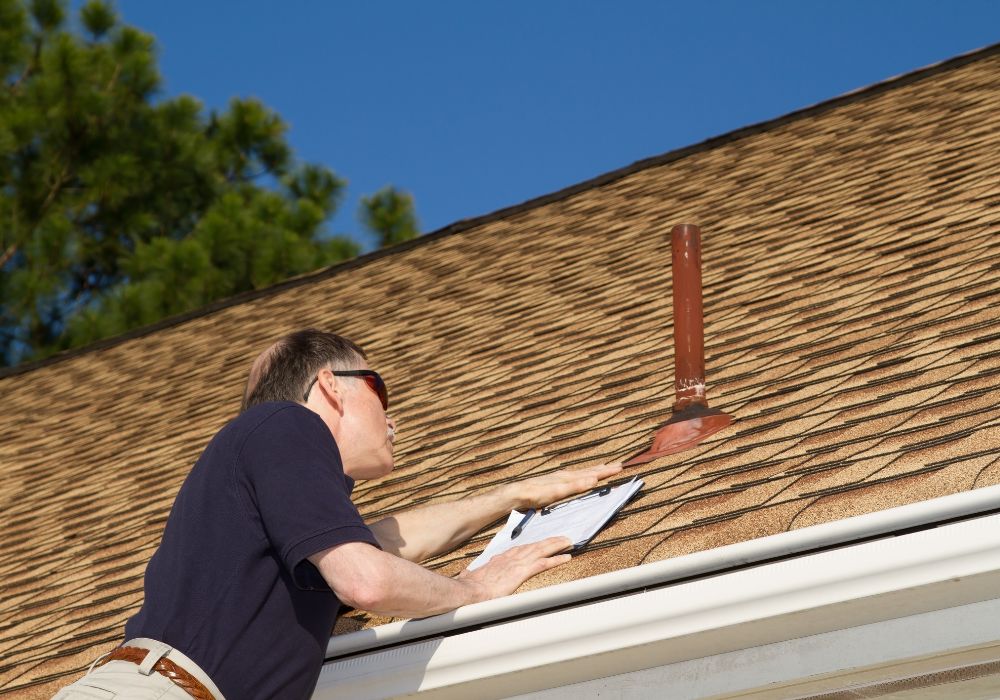Roof Inspection: Top 5 Tips for 2024 Peace of Mind
Why Roof Inspections Are Essential for Homeowners
Roof inspection is crucial for maintaining the safety and longevity of your home. A proper roof inspection helps you identify potential problems early, saving you from costly repairs down the line.
Quick Answers for Roof Inspections:
- What is a Roof Inspection? A thorough check of all roofing components to evaluate its condition.
- Why is it Important? It helps spot issues like leaks, damage, and wear before they become costly problems.
- How Often? At least once a year, or after severe weather events.
Your roof isn’t just a passive structure—it’s an active system protecting your home from the elements. From keeping rain and snow out to promoting air circulation, your roof performs vital functions. Timely inspections ensure it continues to do so efficiently.
I’m Ben Connell, owner of Connell Roofing, Inc., with over 60 years of experience in the industry. Regular roof inspections have been a cornerstone of our service, providing homeowners with peace of mind and extending the lifespan of their roofs.
Ready to dive deeper into why roof inspections matter? Keep reading to discover how regular checks can save you money and protect your home.
Understanding Roof Inspection Costs
When planning for a roof inspection, understanding the costs involved is crucial. Let’s break down the factors that influence these costs, the average prices you can expect, and the different types of inspections available.
Cost Factors
Several factors can affect the cost of a roof inspection. Here are the key ones:
- Size of Your Roof: Larger roofs take more time to inspect and may cost more.
- Roof Slope and Height: Steeper and higher roofs are more challenging to inspect, potentially increasing the cost.
- Inspection Type: Different inspection methods have varying costs (more on this below).
- Location: Costs can vary by region due to differences in labor rates and demand.
- Inspector’s Experience: More experienced inspectors might charge higher fees.
Average Prices
On average, a roof inspection costs between $125 and $350. However, prices can range from as low as $75 to as high as $600 depending on the factors mentioned above.
| Inspection Type | Average Cost |
|---|---|
| Physical Roof Inspection | $75 – $200 |
| Drone Roof Inspection | $150 – $400 |
| Infrared Roof Inspection | $400 – $600 |
Inspection Types
There are three main types of roof inspections, each with its own pros and cons:
- Physical Roof Inspection: A certified contractor climbs a ladder to inspect your roof in person. This method is thorough and typically costs between $75 and $200.
- Drone Roof Inspection: Uses camera-equipped drones to capture a detailed view of your roof from above. This method is less invasive and costs between $150 and $400.
- Infrared Roof Inspection: Utilizes infrared technology to detect issues not visible to the naked eye, such as hidden leaks or insulation problems. It’s the most expensive option, ranging from $400 to $600, but offers the most comprehensive analysis.
Why Costs Vary
The cost of a roof inspection can vary widely based on the specifics of your home and the type of inspection you choose. For instance, a physical inspection of a small, single-story home will generally be cheaper than an infrared inspection of a large, multi-story home.
Understanding these cost factors helps you budget effectively and choose the right type of inspection for your needs.
Ready to dive deeper into why roof inspections matter? Keep reading to discover how regular checks can save you money and protect your home.
Signs Your Roof May Need Attention
Knowing when your roof needs attention can save you from costly repairs down the line. Here are some key signs to look out for:
Shingle Damage
Shingles are your roof’s first line of defense. Over time, they can suffer from cracking, curling, or even missing pieces. Damaged shingles are often a sign that your roof is nearing the end of its lifespan.
Look for:
- Granule loss: If you find granules in your gutters, it’s a sign your shingles are deteriorating.
- Buckling and curling: This can indicate that the shingles are no longer providing adequate protection.
- Cracks and bald spots: These are clear signs of wear and tear.
Leaks
Water stains on your ceiling or walls are a clear red flag. Leaks can lead to mold, rot, and structural damage if left untreated.
Common sources of leaks include:
- Flashing: Thin metal strips around chimneys, skylights, and vents can crack or detach, leading to leaks.
- Roof valleys: These are prone to water pooling, which can seep through the roofing material.
- Damaged shingles: Missing or broken shingles create easy paths for water to enter.
Age
Roofs have a limited lifespan, which varies based on the material:
- Asphalt shingles: 15-30 years
- Wood shingles or shakes: 20-40 years
- Metal roofing: 40-70 years
- Clay or concrete tiles: 50-100 years
- Slate roofing: 75-200 years
If your roof is nearing the end of its expected lifespan, it’s time for a thorough inspection.
Moss Growth
Moss or algae on your roof is more than just an eyesore. It can trap moisture, leading to rot and decay of the underlying materials.
To prevent moss growth:
- Trim tree branches: Ensure they don’t overhang your roof.
- Keep the roof clear of debris: Leaves and branches can retain moisture.
- Kill moss and algae blooms immediately: Use a moss killer or hire a professional for removal.
Identifying these signs early can save you from more significant issues and expenses in the long run.
Now that you know what to look for, let’s dive into the comprehensive roof inspection process to understand how professionals evaluate the health of your roof.
The Comprehensive Roof Inspection Process
A roof inspection is more than just a quick look at your shingles. It’s a thorough evaluation that covers several key areas to ensure your roof is in top shape. Here’s what professionals focus on:
Structural Integrity
Inspectors start by checking the structural stability of your roof. This involves looking at the wooden decking and frame for any signs of sagging, rot, or sponginess. They’ll also inspect rafters and joists to make sure they’re not cracked or splintered.
Why it matters: A weak structure can lead to roof collapse, especially under heavy snow or during storms. Addressing these issues early can save you from costly repairs later.
Material Condition
The next step is examining the roofing materials. Inspectors look for damage such as cracks, splits, curling, or missing granules on shingles. For slate or tile roofs, they check for cracks and chips. Metal roofs are inspected for rust, corrosion, and split seams.
Important areas: Special attention is given to roof valleys, which are prone to leaks, and any signs of water damage or moss and algae buildup.
Interior Checks
A comprehensive inspection also involves checking the interior of your home, especially the attic. Inspectors look for water stains, mold, pest infestations, and other signs of leaks. They also evaluate the condition of rafters, joists, and decking from the inside.
Why this step is crucial: Interior checks can reveal hidden issues that might not be visible from the outside, such as slow leaks or structural weaknesses.
Roof Penetrations
Inspectors examine all roof penetrations like skylights, chimneys, and vent pipes. They check for rust or cracks in the flashing and ensure that chimney caps and masonry are in good shape.
Common issues: Damaged flashing around penetrations is a frequent cause of leaks, so this step is essential for maintaining a watertight roof.
Fascia and Soffits
The fascia and soffits are also inspected for signs of rot, cracks, or warping. These boards protect your roof from water damage and pest infestation, making their condition critical.
Attention to detail: Even minor damage here can lead to significant problems if left unaddressed.
Ventilation System
Proper ventilation is key to a healthy roof. Inspectors check ridge vents, soffit vents, and gable vents to ensure they are allowing adequate airflow. Poor ventilation can lead to moisture buildup and shorten the lifespan of your roof.
Tip: Make sure your attic is well-ventilated to prevent issues like mold and ice dams.
Gutter System
Finally, the gutter system is inspected. Blockages, cracks, and broken seams are identified, as well as the presence of shingle granules in the gutters, which indicate deteriorating shingles.
Why it matters: A well-functioning gutter system prevents water from pooling on your roof and causing leaks or structural damage.
A thorough roof inspection covers all these areas to ensure your roof is in optimal condition. Regular inspections can help catch issues early, saving you money and extending the life of your roof.
Next, we’ll discuss why regular roof inspections are crucial for maintaining your home.
Why Regular Roof Inspections Are Crucial
Regular roof inspections are essential for several reasons: preventative maintenance, cost savings, and early problem detection.
Preventative Maintenance
Think of a roof inspection as a health check-up for your home. Just like regular doctor visits catch health issues early, routine roof inspections identify potential problems before they become severe.
For example, an inspector can spot small cracks or minor water damage that you might miss. Fixing these issues early prevents them from escalating into bigger, costlier repairs. Regular maintenance ensures your roof stays in top shape, protecting your home from the elements.
Cost Savings
Regular roof inspections can save you a lot of money in the long run. Addressing minor issues promptly is much cheaper than dealing with major repairs or a full roof replacement. According to Forbes, a typical roof inspection costs between $75 and $200, whereas a new roof can cost thousands.
Additionally, well-maintained roofs are more energy-efficient. Proper insulation and ventilation reduce heating and cooling costs, adding to your savings.
Early Problem Detection
Early detection is crucial for preventing significant damage. During an inspection, professionals look for signs like:
- Water stains and mold in the attic
- Wood rot
- Loose or missing shingles
- Moss or algae growth
Catching these signs early means you can address them before they lead to more severe issues like leaks or structural damage. This proactive approach ensures your roof lasts longer, providing continuous protection for your home.
In summary, regular roof inspections are a smart investment. They help maintain your roof, save money, and catch problems early. Up next, we’ll answer some frequently asked questions about roof inspections.
Frequently Asked Questions about Roof Inspections
How much does a roof inspection cost?
The cost of a roof inspection can vary widely based on several factors such as the size of your home, the type of inspection, and your location. On average, you can expect to pay between $75 and $600.
- Physical roof inspections typically range from $75 to $200.
- Drone roof inspections can cost between $150 and $400.
- Infrared roof inspections are the most thorough and range from $400 to $600.
Most homeowners pay around $220 for a standard inspection.
What is included in a roof inspection?
A comprehensive roof inspection covers several key areas to ensure your roof is in good shape:
- Structural Inspection: Checks for sagging roof planes, damaged rafters, and other structural issues.
- Material Inspection: Looks for damaged or missing shingles, rust, moss, and water stains.
- Interior Inspection: Examines ceilings, attics, and walls for water stains, wood rot, mold, and any signs of pests.
- Additional Components: Inspects soffits, fascias, gutters, skylights, chimneys, and vents.
A good inspection will also include a review of your attic’s ventilation and insulation systems, as these are crucial for your roof’s longevity.
How often should I schedule a roof inspection?
Experts recommend scheduling a roof inspection at least once a year. Ideally, you should do this in the spring or early summer to check for any damage from winter storms.
Here are some additional times you might need an inspection:
- After severe weather events: High winds, hail, or heavy snowfall can damage your roof.
- Before buying or selling a home: To ensure the roof is in good condition.
- If you notice signs of damage: Like leaks, missing shingles, or moss growth.
Regular inspections help catch minor issues before they become major problems, saving you money and extending the life of your roof.
Choosing the Right Roof Inspector
Choosing the right roof inspector can make a big difference in the quality and reliability of your roof inspection. Here’s what to look for:
Certifications
A certified roof inspector has specialized training. They know how to spot issues that others might miss. Look for certifications like:
- National Roof Certification and Inspection Association (NRCIA): This is a leading certification body. Inspectors with this certification have proven expertise.
- Wind Damage Inspector Certification: This is important if you live in an area prone to storms or tornadoes.
- Residential Roof Inspector Certification: Focuses on the unique needs of residential properties.
Certifications ensure that the inspector is trained to the highest standards. This gives you peace of mind that your roof is being thoroughly examined.
Experience
Experience matters. An inspector with years of experience has seen many types of roofs and issues. They can quickly identify problems and suggest the best solutions.
For example, Connell Roofing has over 60 years of experience. This extensive background means they have handled a wide range of roofing projects. Experienced inspectors are also familiar with local building codes, which helps avoid potential fines and violations.
Local Expertise
Local expertise is crucial. An inspector who knows your area understands the specific challenges your roof faces. For instance, roofs in Massachusetts have to withstand harsh winters and heavy snowfall.
Connell Roofing has been serving the local community for decades. They know what to look for when inspecting roofs in this region. Local inspectors are also more likely to be aware of any regional building regulations or common issues.
What to Ask Your Roof Inspector
Before hiring, ask these questions:
- How old is my current roof?
- What materials were used?
- Are the ventilation and insulation systems in good condition?
- Do the gutters need cleaning, repair, or replacement?
- What are my options for roof materials, warranties, and repairs?
These questions help ensure you get a comprehensive inspection and understand your roof’s condition.
Choosing the right roof inspector ensures your roof inspection is thorough and accurate. This helps you catch issues early and maintain your roof’s integrity.
Conclusion
Choosing the right roofing contractor can make all the difference in maintaining your home’s structural integrity and value. At Connell Roofing, we understand the importance of a thorough and professional roof inspection. Our team is dedicated to providing you with peace of mind through reliable and detailed inspections.
By opting for regular roof inspections, you are not only protecting your home but also making a smart investment. Early detection of potential issues can save you thousands in repair costs down the line. Our experts are trained to spot even the smallest signs of damage, ensuring that your roof remains in optimal condition for years to come.
We pride ourselves on our commitment to safety, quality, and exceptional customer service. From the initial consultation to the final inspection, Connell Roofing is here to guide you every step of the way.
Schedule your next roof inspection with us today and secure the longevity and safety of your home.
Learn more about our roofing services and schedule your inspection.




